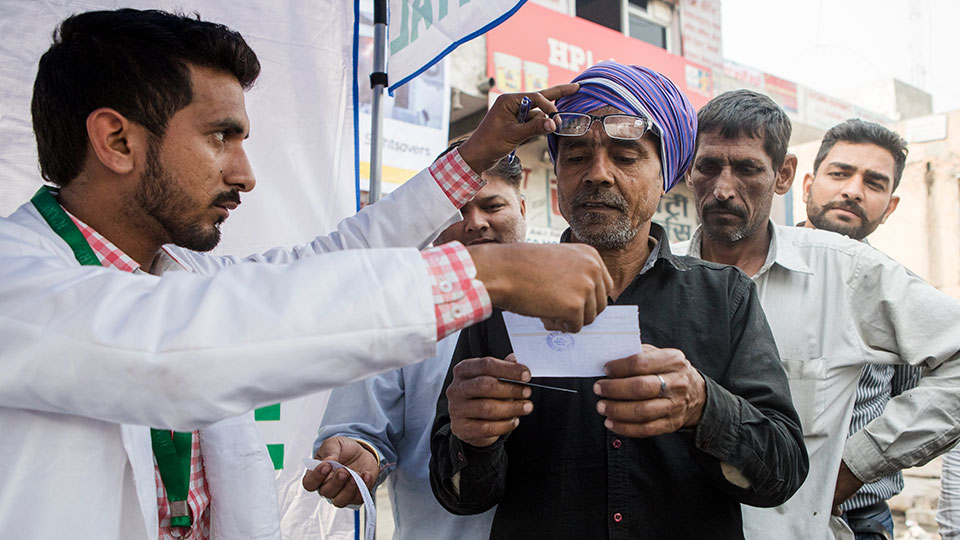Drivers failing to wear the vision correction they require, survey finds
Sightsavers has released the results of research into UK drivers and vision correction in order to highlight its work in India

11 October 2018
Almost 80% of drivers who are legally required to wear glasses or contact lenses are not wearing them while driving, a new survey has found.
The findings of the survey of 2001 UK drivers were released by Sightsavers to mark World Sight Day today (11 October).
The research found that over a third (35%) of drivers in the UK who are required to wear glasses or contact lenses forget to wear them “most days” when they are driving, with over a quarter (27%) saying they forget every week.
Just a fifth (22%) of survey respondents who are required to wear glasses or contact lenses said they “always” wear them while driving.
Sightsavers explained that it released the figures on World Sight Day in order to raise awareness of the lack of access to eye care for an estimated one billion people living in developing countries.
Sharing its findings, Sightsavers emphasised that the human cost for uncorrected refractive error is greater than most people realise, particularly when it comes to road safety.

The charity is working in India to reach half-a-million truck drivers and minimise road accidents over the next three years. It highlighted that an estimated 200,000-plus people are killed on India’s roads each year.
In 2016, a Sightsavers programme screened over 17,500 truck drivers in the country and found that almost half (46.7%) of those who were driving without glasses required vision correction them to see clearly.
In a smaller study that it carried out, Sightsavers reported that almost 63% of drivers said had difficulty seeing distant objects and over 37% had difficulty reading.
As part of the programme, 7600 truck drivers received free glasses in order to both improve road safety and their quality of life.
Sightsavers’ eye health expert, Dr Sandeep Buttan, who worked on the programme explained: “There are nine million truck drivers and transporters in India – it is a huge industry here. We identified truck drivers as a group in need of eye care because they are travelling long distances, often in unsafe conditions and with little job security.”
“Eye care awareness was really low. Truckers are not covered by the existing eye care services, which are often far from their travel routes and don’t fit into their work schedules,” he added.
Sightsavers’ director of programme strategy, Dominic Haslam, said: “Treating people for something as simple as refractive error is not often seen as lifesaving and yet we know there are millions of drivers on main roads around the world who can’t see properly.
“This issue affects all of us in every country of the world.”
Commenting on the programme, the AOP’s professional advisor, Henry Leonard, told OT: “It’s great to see Sightsavers raising awareness of the importance of good vision for drivers. In the UK we have eye health experts on nearly every High Street, yet the AOP’s own research indicates that a third of road users have continued to drive despite doubting whether their vision is good enough. Hopefully these findings from Sightsavers’ will remind drivers that making our streets safer can be as simple as a trip to their optometrist and wearing the right vision correction.”
Image credit: Claudia Janke/Sightsavers 2018
Advertisement


Comments (3)
You must be logged in to join the discussion. Log in
Tiggy Puggenheim12 October 2018
Only one fifth of drivers always wear their required correction when driving? That'd be just the optometrists and the road safety campaigners then... Time to drop the paltry fine as a punishment; how about a public birching at the roadside for all drivers found to be in breach of their licence conditions?
Report Like 170
Tiggy Puggenheim12 October 2018
Driving holiday in India, anyone?
Report Like 170
Tiggy Puggenheim12 October 2018
Driving holiday in India, anyone?
Report Like 180